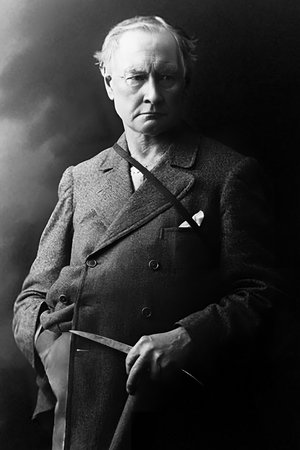
Edward Whymper
Born: April 27, 1840
From: City of London, London, England, UK
Edward Whymper was a British mountaineer and illustrator, born April 27, 1840 in London and died September 16, 1911 in Chamonix where he is buried. He is best known for being part of the tragic expedition that first conquered the Matterhorn on July 14, 1865, and for the peaks and routes to which his name is attributed.
He received training as a draftsman and engraver. He discovers the Alps on the occasion of a commitment to make illustrations. Among his most remarkable first ascents were the Barre des Écrins in the Écrins massif in 1864, and in 1865 the Aiguille Verte in the Mont-Blanc massif and especially the Matterhorn in the Valais Alps, a summit which had repelled many attempts . He also made the first ascent of the Chimborazo in 1880. The success at the Matterhorn was tarnished by an accident in which four people perished, including the Chamonix guide Michel Croz. His success, shortly before, at the Aiguille Verte, accompanied by Valais guides, was particularly badly felt in Chamonix. The story of his ascents forms the subject of his book Scrambles among the Alps (1871) where his conquering character is revealed. Whymper is interested in summits, not in routes: he chooses the most beautiful and difficult virgin summits of his time, surrounds himself with the best possible guides and, thanks to his extraordinary sense of the mountain, determines the most efficient route to reach the top. Thus for the Aiguille Verte he did not take the corridor that bears his name over its entire height, despite its intrinsic beauty: he branched off directly towards the summit in the last third, avoiding by a passage that e no longer take the steepest and most interesting part of the couloir. In this, Whymper clearly differs from Mummery, for whom, twenty years later, the beauty of the route and its difficulty take precedence.
After the Alps, Whymper is interested in other massifs. He climbs in the Pyrenees, notably the Vignemale with the guide Célestin Passet. In fact, he is at the crossroads in the history of mountaineering, between exploration mountaineering and sport mountaineering (his book is still full of scientific notations on glaciers, etc. that are no longer found then with his successors).
From his expedition to Greenland organized by Robert Brown in 1867, Whymper brought back an important collection of fossil plants, described by Professor Heer and deposited in the British Museum. Although handicapped by a lack of provisions, he proved that the interior of Greenland could be explored by means of sleds and this contributed to the advance of Arctic exploration. Another expedition in 1872 aimed to explore the coast. Whymper then organized an expedition to Ecuador to study acute mountain sickness and the effects of reduced atmospheric pressure on the human body. His guide was Jean-Antoine Carrel (who would later die of exhaustion in the Matterhorn after saving his clients from a snowstorm). Whymper made two ascents of Chimborazo (6,310 meters). He spent a night at the top of Cotopaxi and made several first ascents of great peaks with Jean-Antoine Carrel and Louis Carrel.
Filmography
